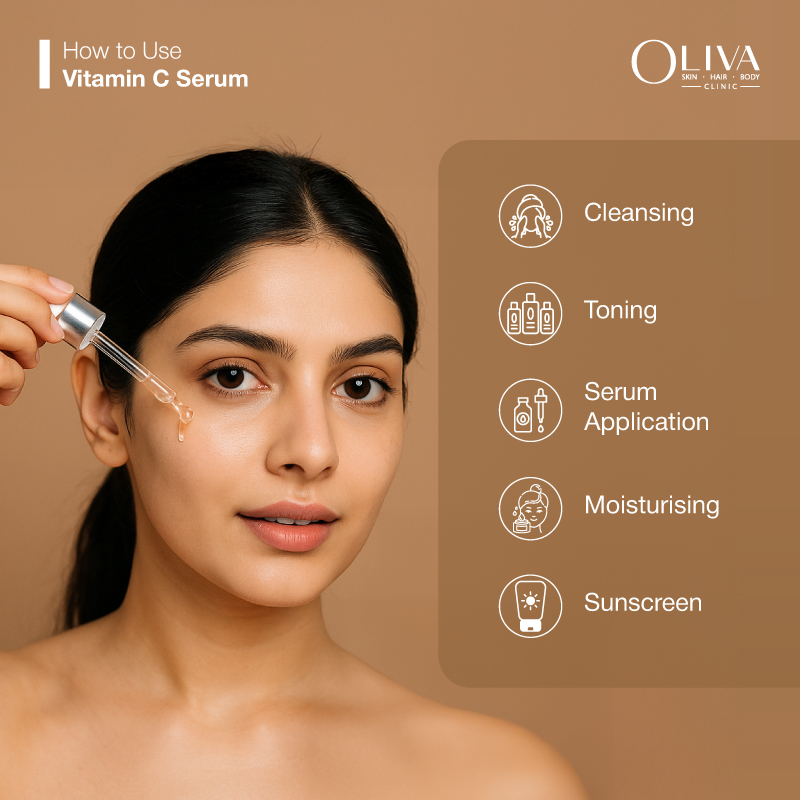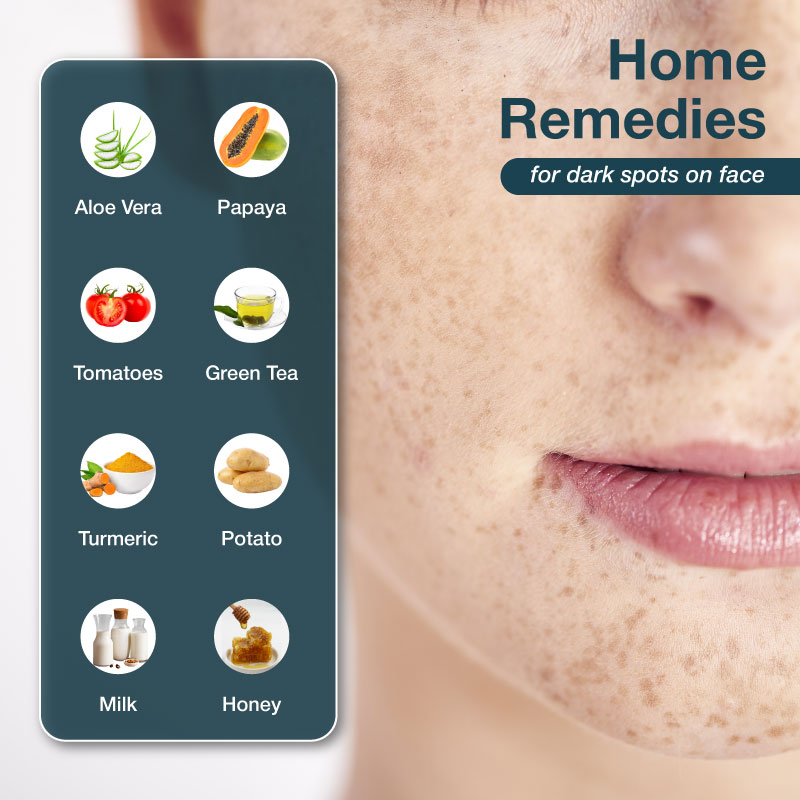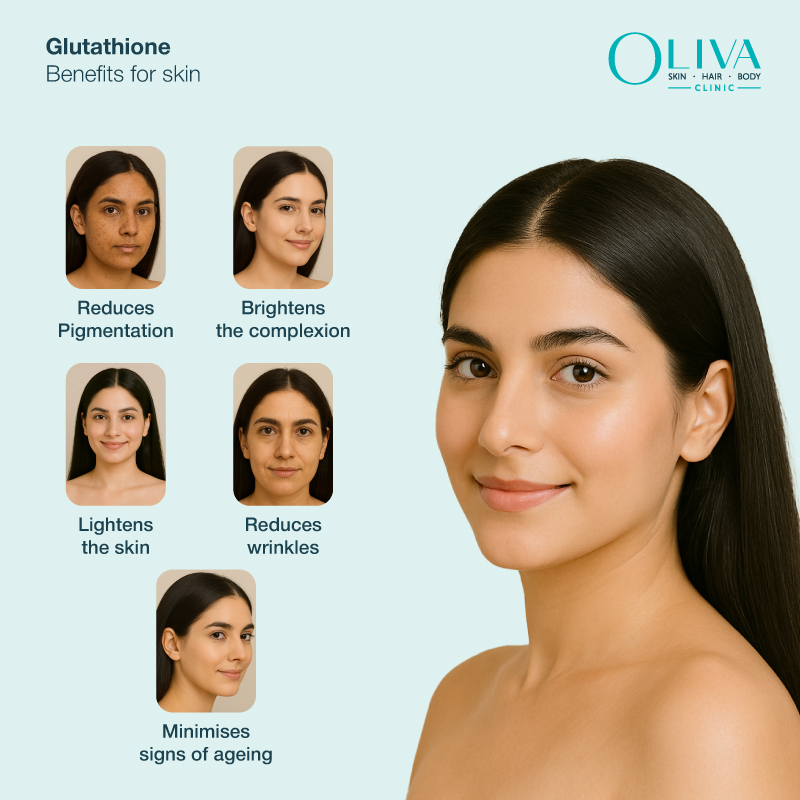In This Article
How To Use Vitamin C Serum For Glowing Skin: Benefits, Types & Side Effects
From preserving cell well-being to promoting wound healing and maintaining healthy skin, hair, and bones, vitamin C or ascorbic acid performs several essential functions in the body [1]. Its antioxidant and immunity-boosting benefits make it a potent vitamin to fight off infections and promote general physical well-being. As one of the most researched skincare products, vitamin C continues to remain a trustworthy and popular choice. Specifically, its benefits for the skin are also truly remarkable. Vitamin C serum is a multitasking product that reigns supreme as an exceptional skincare ingredient owing to its anti-ageing, brightening, skin shielding and restorative properties. Let us explore the benefits, types, and standard precautions associated with vitamin C serum in more detail.
In This Article

What Is Vitamin C Serum?
Vitamin C serum is a lightweight skincare product with a watery or gel-like consistency. It effectively fights damaging free radicals produced by UV exposure and environmental pollutants, reducing the appearance of fine lines, wrinkles, and uneven skin texture. Its brightening and collagen-enhancing properties help tighten and lighten skin, making it a popular choice in aesthetic and cosmeceutical care. Physical or environmental stress can often lead to elevated levels of tyrosine enzyme, which aids in melanin production. This leads to issues such as pigmentation and dull complexion. Vitamin C serums inhibit tyrosine activity, cutting melanin synthesis and smoothing and brightening skin tone. The list of its benefits does not stop here; it also helps the skin retain moisture, protects the skin barrier, and shields it against irritants.
Benefits Of Vitamin C Serum
The many benefits of vitamin C facial serum for your skin include:
- Acts as a powerful antioxidant that protects the skin from free radicals
- Anti-ageing effects, such as reducing fine lines, wrinkles, and dullness
- Brightens the skin and reduces hyperpigmentation
- Boosts SPF efficacy to shield the skin against sun damage
- Promotes collagen production
- Hydrates the skin
- Helps soothe sunburns
- Enables wound healing
- Evens out the skin tone
Types Of Vitamin C Used In Serums
Serums containing vitamin C are not all the same. Vitamin C serum is available in different forms and types, each with unique features and benefits. The various types of vitamin C serums are as follows:
- L-Ascorbic Acid: L-ascorbic acid is the most effective form of vitamin C in a serum formulation, eliminating free radicals and enhancing collagen production. It is also the popular form of vitamin C, often used in skin care products. Ideal usage of L-ascorbic acid is in medium concentrations, between 10% and 20%.
- Sodium Ascorbyl Phosphate (SAP): SAP is a stable form of vitamin C with antioxidant, anti-ageing, and anti-inflammatory properties, making it suitable for both mature and acne-prone skin. In skin care, sodium ascorbyl phosphate is ideal at a lower 0.2-3% concentration. It improves the skin’s natural barrier and fights signs of ageing, such as fine lines and wrinkles, by enhancing collagen synthesis.
- Ascorbyl Palmitate: Ascorbyl Palmitate is a fat-soluble form of vitamin C that is also effective against free radicals. [2] Although less effective than L-ascorbic acid, this form of vitamin C is more stable than the former in terms of stability and can boost collagen production by permeating the skin’s lipid layer. The effective concentrations of Ascorbyl Palmitate used in topical preparations are rather low, ranging from 0.01% to 0.20% . [3]
- Magnesium Ascorbyl Phosphate (MAP): Among all ascorbyl derivatives of vitamin C, MAP is its most stable and ideal form. [4] It is stable, water-soluble, and gentler than L-ascorbic acid, hence suitable for highly reactive skin. It treats hyperpigmentation and also improves skin elasticity over time. Usually, it is ideal at a high concentration of 10% for optimal results.
- Tetrahexyldecyl Ascorbate: This oil-soluble form of vitamin C is stable and easily absorbed by the skin, providing sun protection, brightening effects, and wrinkle reduction. Its lipid-soluble antioxidant properties protect skin oils like ceramides and cholesterol from oxidative harm. The typical concentration range for Tetrahexyldecyl Ascorbate is between 0.1% and 2%.
- Ascorbyl Glucoside: Ascorbyl Glucoside, derived from a naturally occurring source of starch like rice, is a stable form of vitamin C. When prepared appropriately, it breaks down into L-ascorbic acid. It has antioxidant and hydrating properties and is enduringly effective in reducing dullness and hyperpigmentation. It is ideal for use in low concentrations of 2-5% in cosmetic products.
It is advisable to consult a skin expert to determine the optimal concentration and type of vitamin C for your skin, as each skin condition is unique.
pH Levels In Vitamin C Serums
The pH levels must be optimal for a vitamin C serum to perform competently. The ideal pH range for a vitamin C serum, especially one formulated with L-ascorbic acid, is 2.5-3.5 [5]. Generally, a pH of 3.5 is well tolerated by normal skin types; however, a lower pH of 5 would be ideal for individuals with sensitive skin. Furthermore, using products with the correct pH range of vitamin C ensures:
- Better absorption
- Enhanced exfoliation
- Best ingredient efficacy
- Reduced chances of irritation
Skin Types And Vitamin C Serum
Vitamin C serum is generally safe for all skin types, including oily, dry and combination. Certain skin tones and types may exhibit extreme sensitivity to vitamin C. Hence, we recommend expert consultation for tailored choices. Here are the benefits that vitamin C serum offers for different skin types:
- Oily Skin: Vitamin C can help prevent pore clogging and breakouts by regulating excess sebum production for people with oily skin. Its lightweight, water-soluble, and readily absorbent nature enables oily skin to remain hydrated while minimising congestion, information, and environmental damage.
- Dry Skin: Vitamin C serum helps dry skin retain moisture and become more supple by restoring and strengthening the skin’s natural barrier. It can also help manage inflammatory conditions like acne, eczema, and psoriasis.
- Sensitive Skin: When used in suitable form, concentration, and pH, vitamin C serum can be effective for individuals with reactive skin types. Stable forms of vitamin C, such as Ascorbyl Phosphate, Tetrahexyldecyl Ascorbate, or Ascorbyl Palmitate, are gentler than Ascorbic Acid, making them well-suited for sensitive skin. However, it is safer to perform a patch test before applying it to delicate areas such as the face to avoid irritation and follow up with sunscreen during the day.
- Combination skin: The moisturising, oil-controlling, and anti-inflammatory properties of vitamin C can manage acne, dullness and any pigmentation-related issues faced by combination skin.
What To Look For In A Vitamin C Serum?
When trying to narrow down the best vitamin C options, as a thumb rule, tick the following aspects off the checklist:
- Pure form of vitamin C: Vitamin C serum for face best works in its purest form as L-Ascorbic Acid
- Potent Concentration: 10% to 20%
- Packaging: Dark, light-obstructing packaging
- Effective complementary ingredients: Hyaluronic Acid, Vitamin E, and Ferulic Acid
- Customisation: The dermatologist may recommend using a specific form and concentration of facial vitamin C serum for unique skin concerns.
Though quite diversified in its function, vitamin C serum can perform even better when combined with certain suitable and enhancing ingredients. Hence, you can look for a combination that includes one or more of the following ingredients:
- Vitamin E: Vitamin E, in its most effective form as tocopherol, nourishes the skin, promotes vitamin C’s antioxidant effects, and doubles its UV protection and hydration.
- Ferulic Acid: This powerful plant antioxidant improves the stability of vitamins C and E, enhancing UV protection, strengthening the antioxidant effect, and guarding skin against photo ageing and skin malignancies. [5] Furthermore, it helps the skin absorb vitamin C better by lowering its pH and significantly refining its texture.
- Hyaluronic Acid: Combining hyaluronic acid with vitamin C has a compounding effect on skin tone enhancement. While the moisturising properties of hyaluronic acid plump the skin, the antioxidant and brightening effects of vitamin C provide a more youthful and radiant appearance.
What Should Not Be Used With vitamin C Serum?
- Vitamin C serums, when used correctly, can significantly improve skin’s appearance. When incorporating vitamin C serums into your skincare routine, avoid making the following mistakes:
Avoid using vitamin C serums in the same routine as AHAs/BHAs, benzoyl peroxide, retinol or niacinamide. This can result in increased skin reactivity, dryness, peeling and photosensitivity. - Vitamin C serum rapidly oxidises and loses efficacy when exposed to light and air. Hence, pack it in an airtight, dark container and store it in a cool, dry place away from direct sunlight.
How To Use Vitamin C Serum In Daily Routine?
After discussing in detail the myriad benefits of vitamin C serum, let us understand how to apply vitamin C serum to face to achieve the best possible results. Morning is the best time to use vitamin C serum since it helps protect the skin from environmental pollutants and UV radiation, enhancing the effectiveness of sunscreen. Well-protected skin is the first line of defence against wrinkles, fine lines, and other signs of ageing. To use vitamin C serum daily as a part of your AM routine, remember the following cardinal steps:
- Cleansing: Use a suitable cleanser to prepare your skin for product application.
- Toning: After patting your skin dry, apply a gentle toner that does not contain active exfoliating ingredients, which can irritate the skin. Products with hyaluronic acid and vitamin E work best with vitamin C serums.
- Serum Application: Let the toner dry. Now, begin by applying 3-4 drops of the vitamin C face serum and gentlymassaging it into the skin, allowing it to be fully absorbed. Applying facial serums before moisturising and makeup is essential to ensure better absorption.
- Moisturising: Use a lightweight moisturiser to seal the moisture and achieve a healthy look. You can then apply makeup if you desire.
- Sunscreen: Apply sunscreen with an SPF of 30 or higher using the three-finger rule to ensure adequate sun protection and block harmful UV rays.
You can also use Vitamin C serum during the night as part of your PM routine, but avoid layering with chemicals, exfoliants, and actives like retinol, benzoyl peroxide, or compounds with a more acidic pH.
Benefits Of Combining Vitamin C Serums with Sunscreen
While vitamin C alone will not keep the sun damage at bay, it works wonders to augment UV defence when paired with broad-spectrum sunscreen. Research suggests that the safeguarding effects of sunscreen, otherwise limited to 55%, can multiply manifold if combined with vitamin C serum, preventing free radical damage caused by pollution and the sun.
Side Effects Of Vitamin C Serum
Though safe for all skin types, the potential side effects of vitamin C serum include:
- Skin Tenderness: Itching, burning, redness, and inflammation when applied in concentrations higher than the skin’s tolerance threshold. To avoid this, begin with lower concentrations, gradually working up to higher ones.
- Increased Sun Sensitivity: Since vitamin C has exfoliating effects, it can make the skin more sensitive to UV rays. As mentioned earlier, it is essential to understand that vitamin C serum boosts sunscreen protection while having no SPF. Thus, using a broad-spectrum sunscreen of SPF 30+, along with vitamin C face serums, is necessary.
- Dryness and Peeling: Not using appropriate formulations of vitamin C serum for specific skin types may cause flakiness, dry patches or skin peeling. In such cases, refill with moisturisers and discontinue vitamin C serum usage to prevent additional damage. The application of aloe vera can soothe the skin. It is best to seek dermatological assistance to determine the best vitamin C serum for your skin.
Takeaway
A powerhouse ingredient, vitamin C can be a game changer for your skin. Its multifaceted ability to provide antioxidant protection, tackle signs of ageing, and assist in wound healing makes vitamin C an ideal component in the skincare routine. Not only can a vitamin C serum enhance the effectiveness of your sunscreen, but it can also protect your skin from environmental pollutants and free radicals. Its consistent use at the optimal pH is essential for increased absorption, which helps brighten skin, gradually lighten hyperpigmentation, and correct uneven skin tone. To get the most out of vitamin C, use the right type and concentration for your skin’s needs. In this regard, it is best to consult a dermatologist for personalised advice. Always do a patch test before applying to avoid skin reactions or side effects.
Frequently Asked Question
Vitamin C is a powerful antioxidant that fights off harmful free radicals, stimulates collagen production, and helps minimise discolouration. It effectively protects the skin against damaging sun rays.
Usually, vitamin C is safe for everyday use and well tolerated by the skin when you apply sun protection of SPF 30+ religiously. However, if you have sensitive skin, start with 5% vitamin C every other day and work up to every day. Consider seeing a dermatologist if it causes redness, irritation, or inflammation.
It is safe to apply vitamin C in your nighttime regime. The only precaution is to avoid combining it with AHAs and BHAs.
Vitamin C serum benefits for the face range from anti-ageing and brightening to increased hydration and sun protection. The most effective form of vitamin C is L-ascorbic acid, which protects skin against environmental damage, evens out complexion, and promotes cell turnover, making the skin look younger, smoother, and radiant.
Vitamin C can help reduce tan by inhibiting the tyrosine enzyme, which regulates melanin production in the skin.
Vitamin C is ideally safe for individuals of almost every skin tone. However, a patch test is advisable for those with sensitive skin types.
Vitamin C antioxidant serums eliminate free radicals to prevent pollution and UV damage. Hence, using a vitamin C serum before sunscreen application will only help your sunscreen be more effective.
Generally, vitamin C benefits oily skin by regulating sebum, reducing inflammation, minimising pores, strengthening the skin barrier, and providing non-greasy moisturisation. Nonetheless, it is best to inform your dermatologist about any unexpected irritation or reaction from its use.
Applying vitamin C to dry skin can heal the damaged skin barrier, replenish the skin’s moisture, and brighten the complexion overall. However, it may cause irritation, dryness, or peeling on reactive skin.
Read This Next

How To Get Rid Of Dry And Bumpy Skin?

How To Remove Dark Spots On Face Naturally At Home?

Laser Treatments for Face & Skin in Hyderabad: Cost & Process – Oliva Clinic

Glutathione Benefits for Skin: Brightening, Anti-Aging, and More

Skin Peeling On Fingertips: Causes, Treatments, Home Remedies & Prevention



